The Larsi Checkpoint
It has taken nearly six weeks to get permission to enter Russia. Beginning at the Russian office inside the Swiss embassy in Tbilisi then, when family crises pulled me back to England for September, continuing at the Russian embassy in London. In all, I have spent more money (on application fees, mandatory insurance, transit, accomodation in Tbilisi) and time trying to get into Russia than I am likely to spend inside it1.
Applying for a Russian visa involves carefully filling out a very long application, printing it, delivering it (in person, because they have to take your fingerprints), answering the same old dreary round of questions (“are you a terrorist?” etc), and then leaving your passport with them… for a month! For someone who relies on their passport as much as I do, handing over that consecrated little rectangle of international permission felt like taking an anxious sabbatical from even existing.
When the approval finally came, the starting date on my visa had already passed. I walked out of the embassy in London on the morning of September 29th, visa in hand, and booked a flight back to Georgia for the same day, withdrew a thousand US dollars to exchange for Rubles once I reach Russia2, hopped a train back to Catford to say goodbye to Jonny, then another train to the airport. Arriving in Tbilisi in the early hours of the 30th, two buses and a taxi shuttled me to the dilapidated Dmitri Bridge bus station, from there a coach spirited me back to where my footsteps had halted at the Georgia-Russia border a month before.
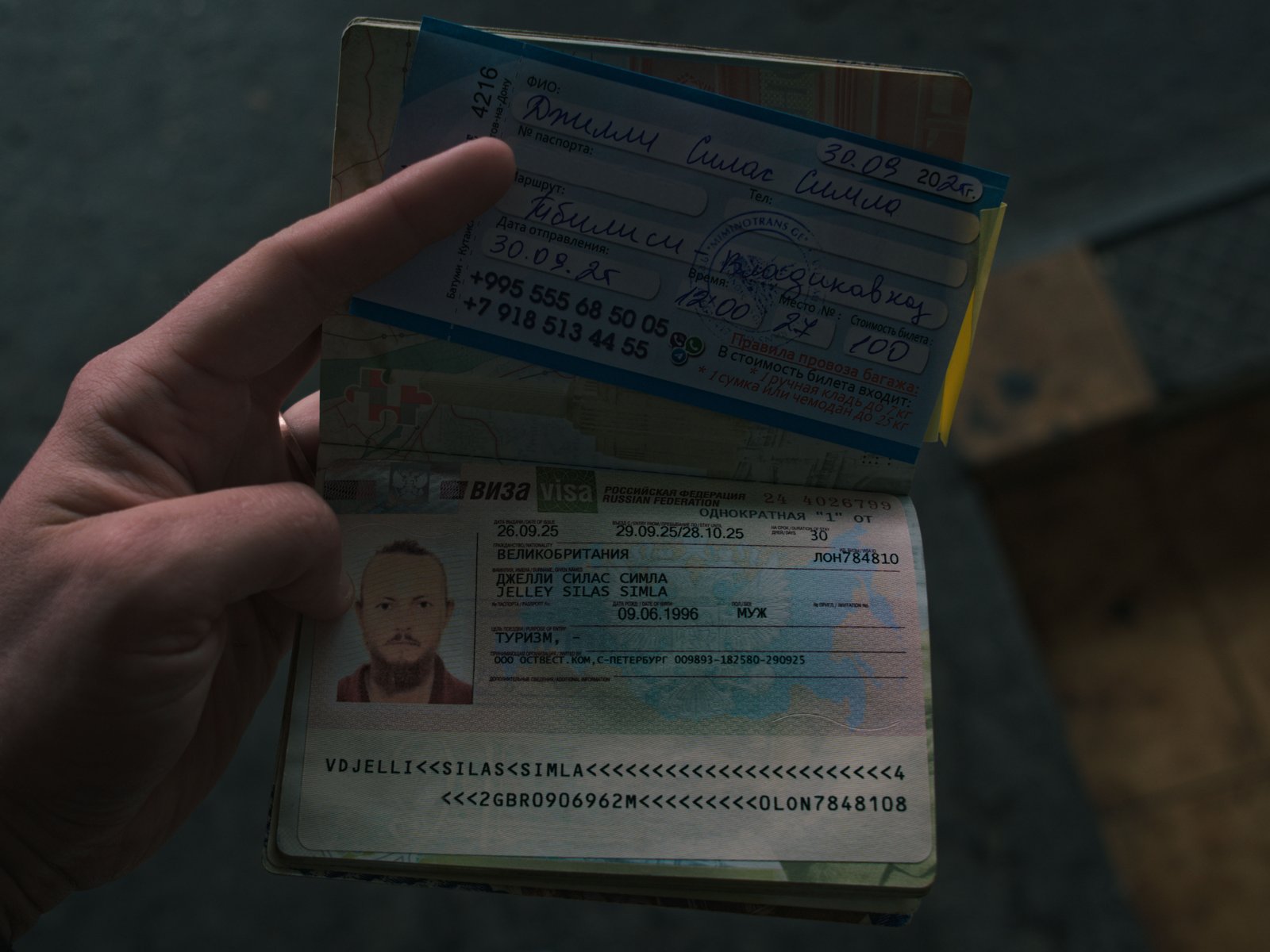
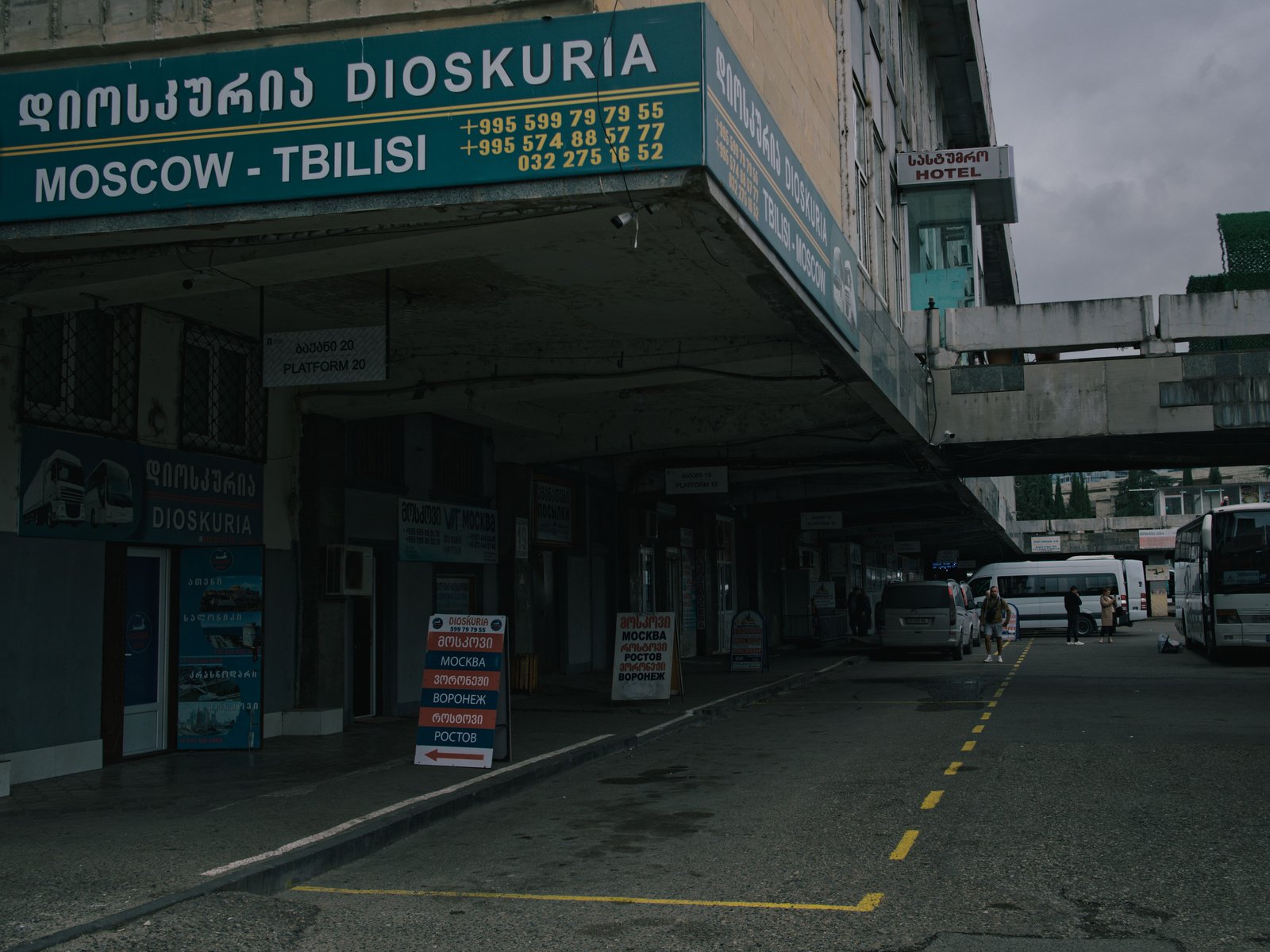
At the checkpoint on the Georgian side, one of the women in the passport control booths has this funny habit of bobbing/wobbling her head like one of those dashboard hula dolls whenever she’s waiting for another person to approach her counter. While we wait I help a little old Babushka install a Russian SIM card in her 30 year old Nokia and get a kiss on the cheek for my trouble. Why she asked me and not one of the thirty people in the line who speak Russian, I don’t know. I stick with her though, and she makes a show of pointing out each of the dogs curled up in the corners of the passport control building, sheltering from the rain that started almost two hours ago. She doesn’t like how chilly it’s gotten, keeps rubbing her arms and going “brrrrr” in a melodrama of cold.
On the Russian side the officer has to lean out over the counter to see Babushka, who can’t be more than four and a half feet tall. She’s just ahead of me, having waived others ahead so that we can hang out and mime to each other a bit longer. Perhaps she too expects that I won’t be getting through any time soon.
Unsurprisingly, I am pulled out of line and subjected to hours of questioning by Russian Border Police, repeated bag searches, further questioning from the secret services (FSB), and a lot of waiting on steel benches in brightly lit, whitewashed holding rooms.
“Why Russia? Why these cities? Who do you know here?”
After being advised by staff at an immigration centre in Tbilisi that neither my visa application nor border entry would succeed if I said I was walking across Russia, I have concocted an elaborate but plausible story for my planned visit to Russia, including the all important mandatory itinerary of every city I intend to visit and on what days. Looking down at this itinerary, and then back at me, the FSB agent remained deeply sceptical that any of these cities besides Volgograd shoud be of interest to a tourist.
I trot out my prepared answers to first these, and then more, and more questions before being banished back to the holding room while the agent checks my story. Phones ring in adjoining rooms, radios squawk outside, diesel engines slumber and roar at intervals as the solemn procession of goods trucks that stretches almost five kilometres back into Georgia is slowly processed. During the last days of the walk to the Russian border, before this whole visa debacle, I’d several times sat and lunched with truck drivers who had been waiting more than a week in that endless column of wheels and steel.

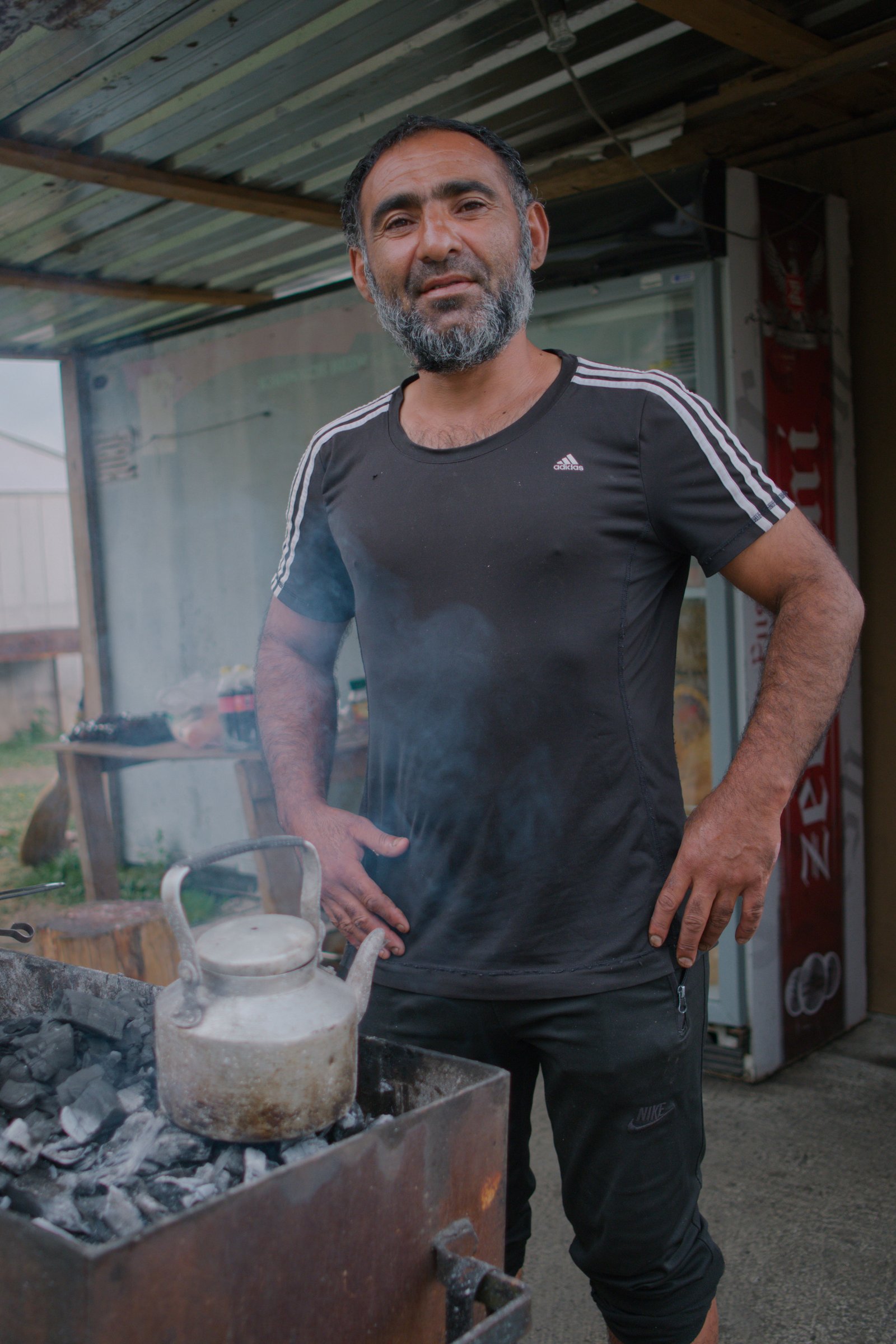
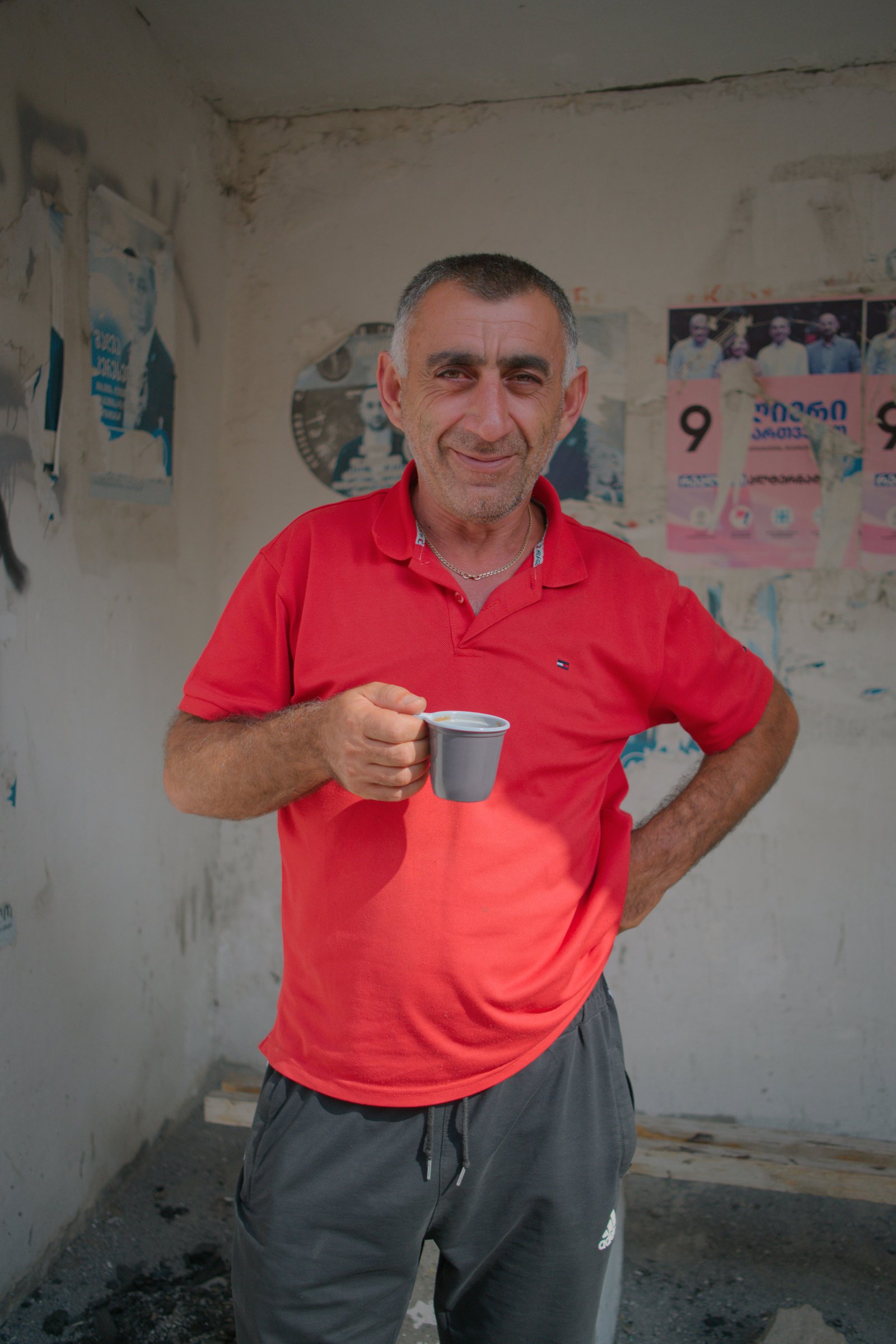
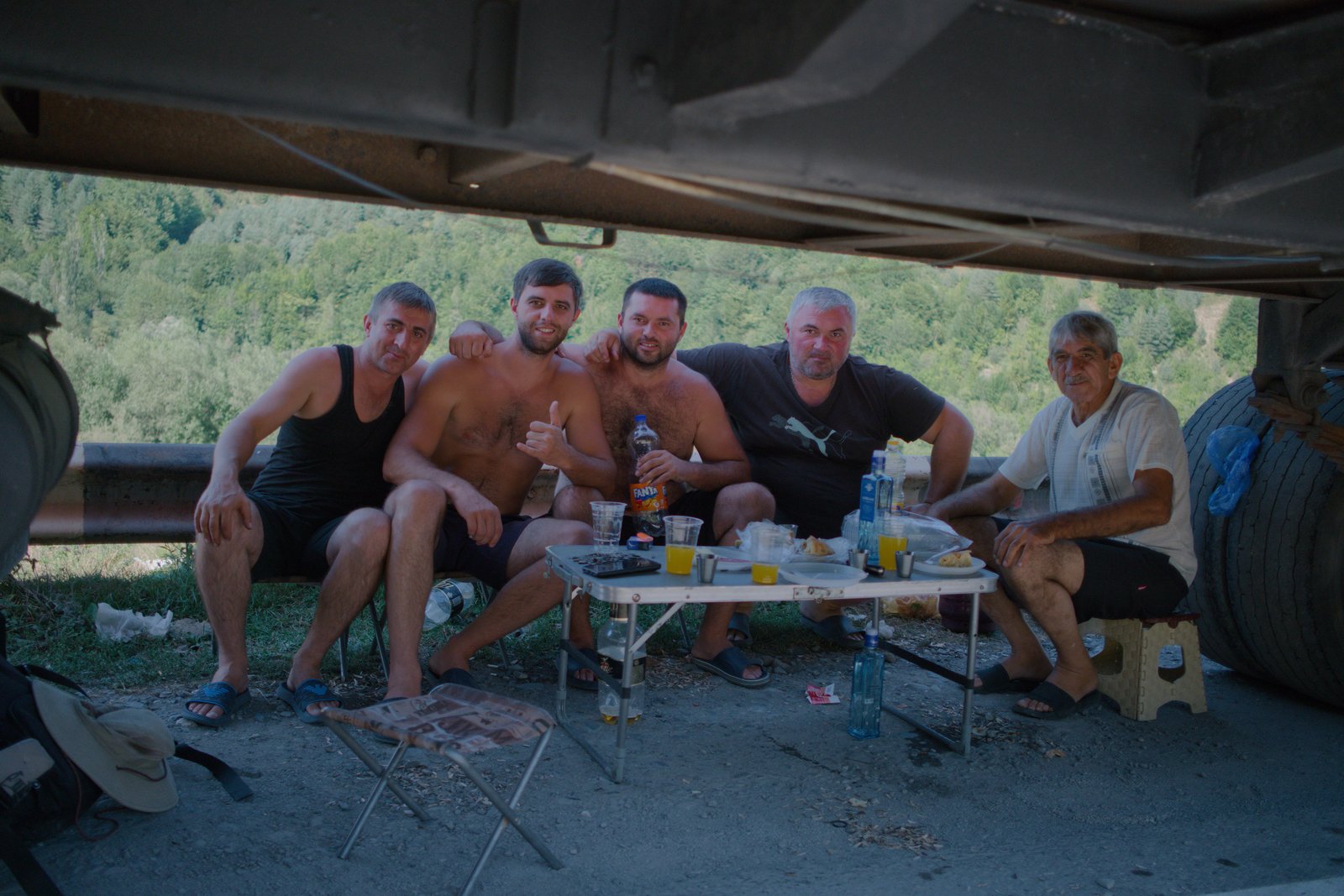
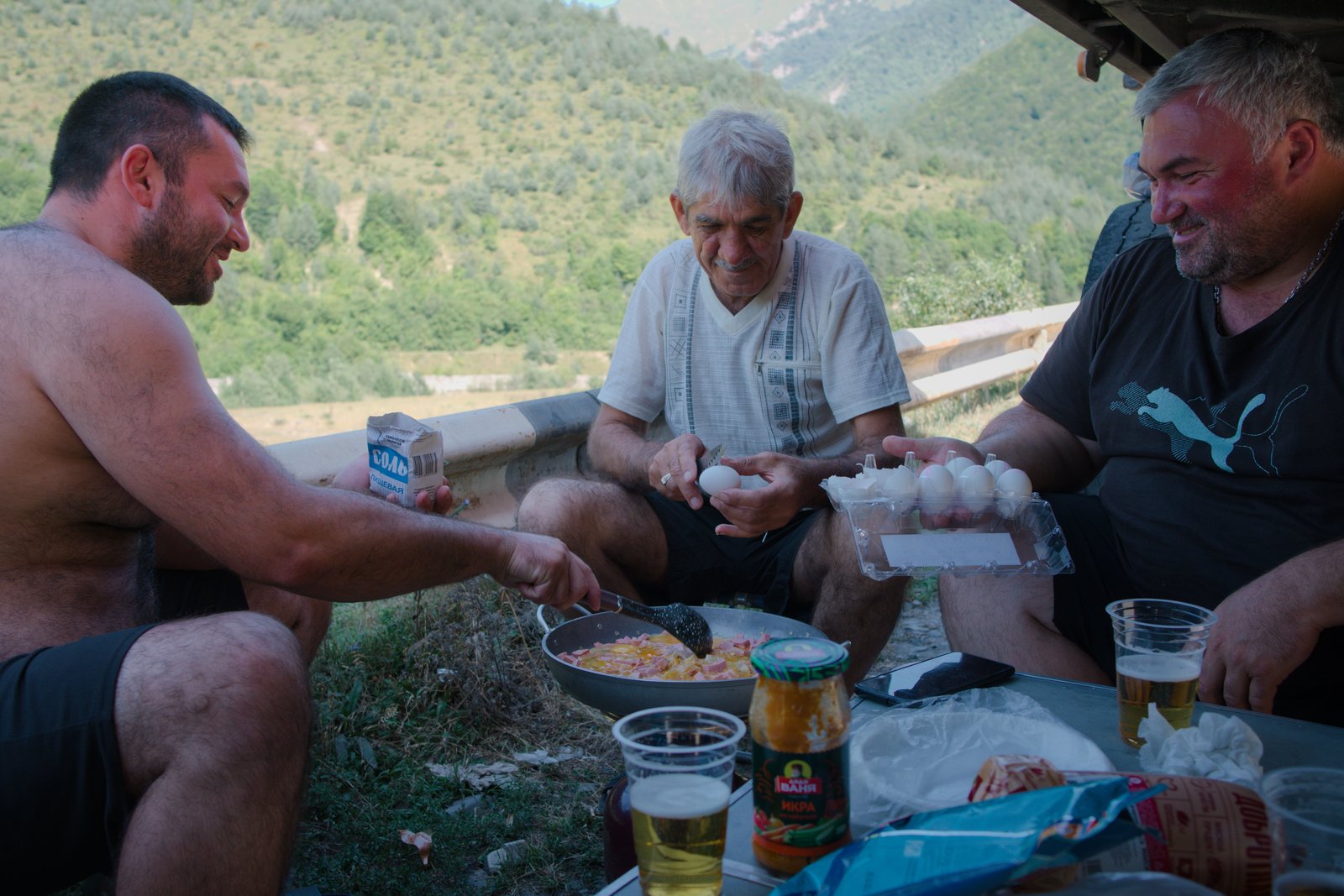
More than an hour later I’m called back for more questions, and the same questions again, checking, I suppose, that my story remains consistent. A bit of unintended comedic relief comes when the agent asks me if I am carrying any weapons, so I fish out my folding knife, an Opinel Number 8 I have been carrying since France. He looks at it, looks up at me, and without any trace of humour says, “but do you have any weapons?”. Mon petit Opinel, how shall it ever recover from such scorn?
At last, after eight hours at the Russian border, the FSB are satisfied (for now) that I don’t pose a threat to Russia and I am given a loose, fragile wisp of paper that is my “Migration Card”. Apparently if I lose or damage this 10cm tall slip of paper at any time in the next month, I will have great difficulty leaving Russia, and will be banned from ever returning.
My passport is stamped; my bag is put through the scanner a fourth and final time; and an armed guard, rifle slung across his back, walks me across the holding pen for cars that have been deemed suspicious, their contents spread out on the tarmac. “Welcome to Russia,” he says, and I almost laugh at the absurdity of it after eight hours of suspicion. The incongruity of it doesn’t escape the guard, but he just shrugs, and then gestures at my phone, asks me to open the translator.
обязательно попробуй осетинские пироги во влаликавказе, особенно с мясом. (”Be sure to try Ossetian pies in Vladikavkaz, especially the meat ones.”)
Once assured that I will try the pies, he waves me on and weaves his way back through the order that is almost indistinguishable from disorder of the checkpoint.
Russia, at last. Now what?
It’s nearly midnight, it’s cold, and the rain shows no sign of letting up, so I hop a bus to Vladikavkaz rather than risk further scrutiny from the border guards, I’ll return to the checkpoint in the morning to continue drawing out my line of footsteps.
-
With the visa clock having begun before I even set foot in Russia, I have at most 27 days in the country. I anticipate spending 300 USD (approximately 10 USD per day) while in Russia. I have easily spent more than that in the bureaucratic maze that has brought me here.↩︎
-
Sanctions make getting a hold of Rubles challenging. The most reliable means is to take US dollars into Russia and exchange them. While the rates at Russian banks are not great, this is the only legal way. The banks stipulate that the bills must be crisp, unfolded, and unmarked, so I carry them sandwiched between two sheets of cardboard, tucked under the lid of my laptop.↩︎